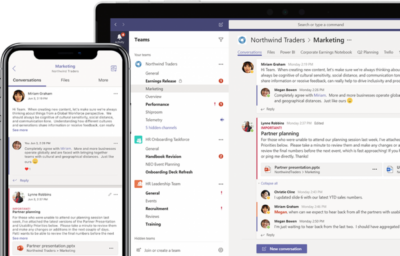New ERP Systems Offer Substantial Benefits Over Previous Generations
By Boyd Goodner
Senior Manager
As someone who has sold enterprise resource planning (ERP) software into all types of organizations, I’m extremely enthusiastic about the newest generation of these broadly useful financial tools.
Not long ago, most companies making the transition off legacy accounting systems were converting their financial operations to a more modern ERP, but it was still an on-premises solution. They still needed an IT infrastructure to manage their system. They had to go through their reseller for something as simple as an upgrade. And the application was restricted to only a few financial related tasks. Now, these newer ERP systems are easier to use with less demand on company resources. And they are much more functional, from easier to use general ledger entries to accounts payable and receivable improvements, to employee expenses and workflow processes for businesses and employees.
Among the many benefits of the new over the previous generation ERP systems:
- Newer, cleaner user interfaces. The new systems make it much easier to navigate among the different functions. That means everything is clearer, more easily accessible, and easier to see the big picture of your financial operation. And the complete solution—the modules you have combined into your customized solution—is available through a mobile application as well as on the desktop.
- Access for non-financial employees. For example, integrated modules allow employees to submit their expenses and get paid through the solution, therefore eliminating the need for a separate system to deal with employee expenses. Allowing a large group of employees to log in for their expenses can be a huge time savings for an organization. The systems can provide more functionalities through mobile devices so that employees have 24/7 access to important data, no matter where they are. As well, access can be extended to others, like board members, who will be able to pull up real-time reports as opposed to waiting for meetings and paper printouts.
- More efficient IT. Because the newer ERP systems are cloud-based, your IT staff is not tasked with managing a dedicated in-house server. Everything is managed, including data security, backups, etc. through the ERP companies themselves. That clears your IT staff for reporting and other more productive functions, including building their knowledge of more sophisticated technologies than being occupied with activities like upgrades and server maintenance.
- Automated workflows. Activities like notifications and approvals, such as issuing and paying invoices, can now be generated and automated directly through the system. Automated workflows improve process accuracy and efficiency for companies in many industries. Being able to notify employees of important changes that are specific to their responsibilities or streamlining the process of paying vendors can save organizations a tremendous amount of time.
- Easier to use. More functional. Easier to access. The new generation of ERP systems is making businesses more productive, saving them time and money, and allowing their employees to build on their own capabilities instead of being bogged down with menial tasks. That translates to a company that runs more effectively and efficiently and enjoys a healthier bottom line.


